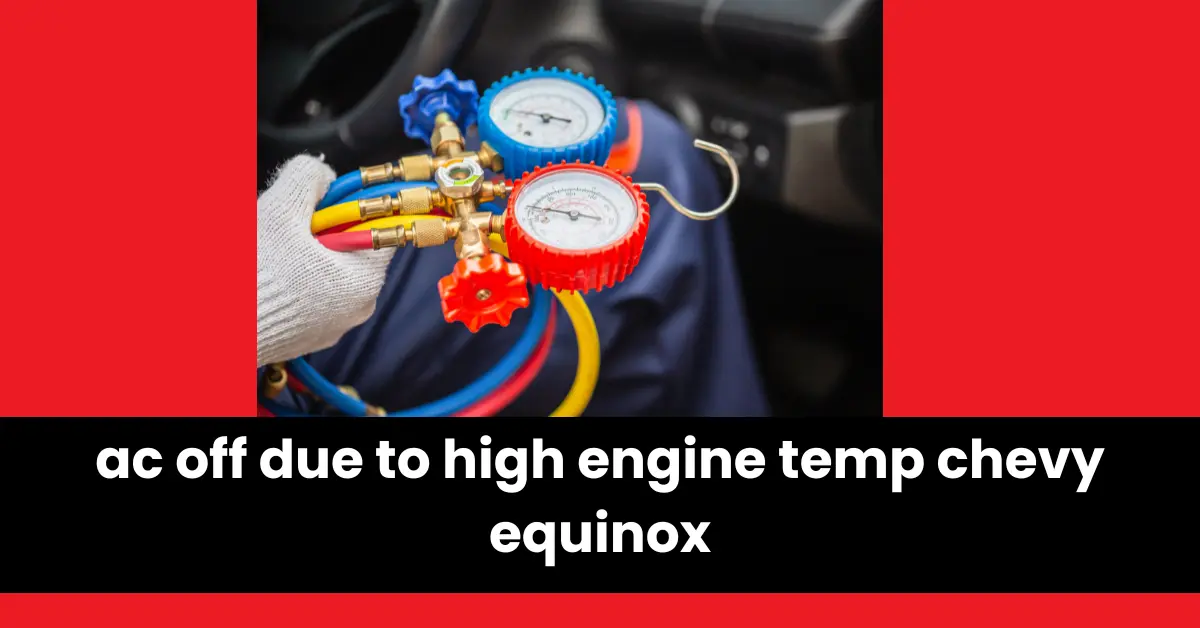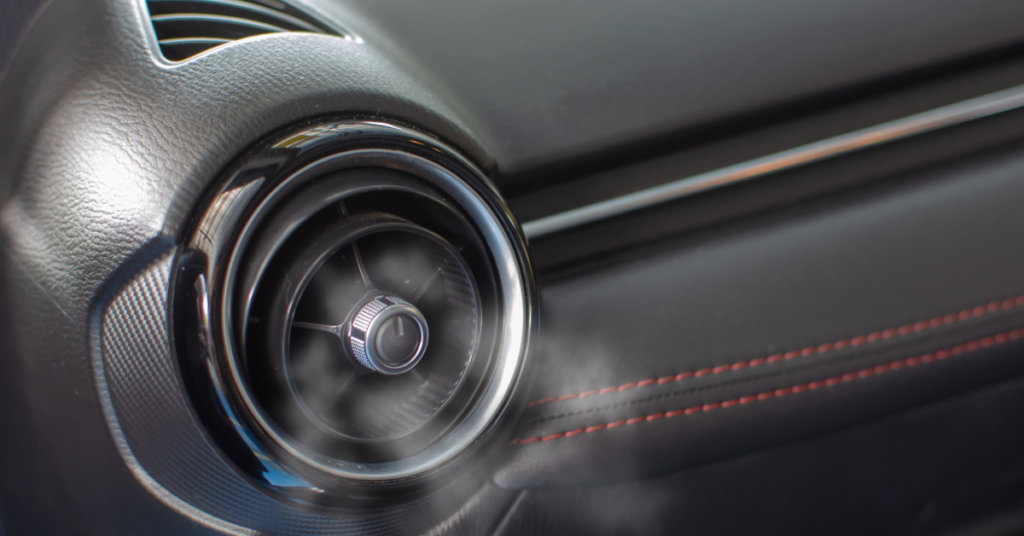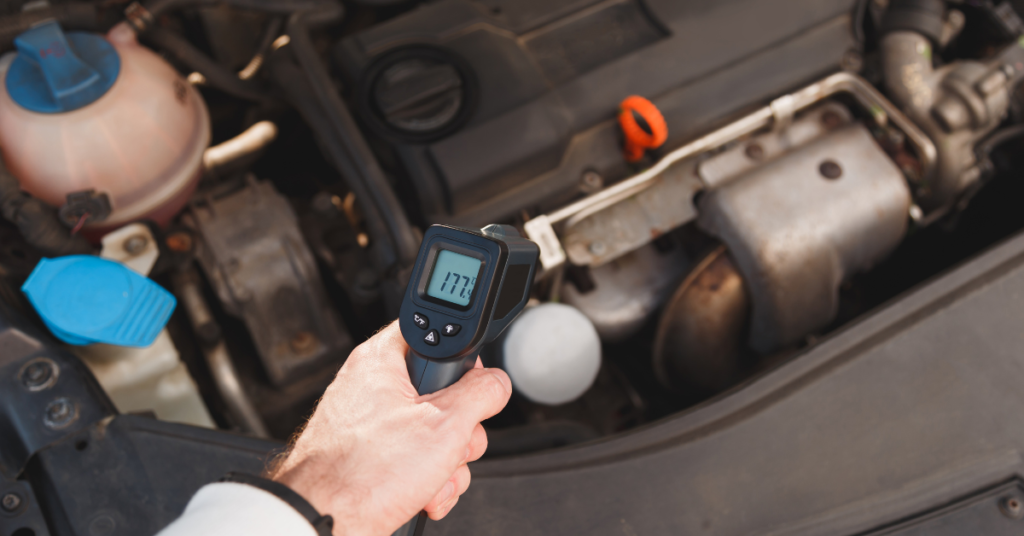
The Chevy Equinox is a popular and reliable SUV known for its impressive performance and comfortable driving experience. However, like any vehicle, it may encounter certain issues that require attention and maintenance.
One common problem that Chevy Equinox owners may come across is the AC being turned off due to high engine temperature.
In this article, we will delve into the causes behind this issue, potential solutions, and preventive measures to keep your Equinox running smoothly.
Contents
- 1 Understanding the Problem
- 2 Causes of AC Off Due to High Engine Temp Chevy Equinox
- 3 Solutions and Preventive Measures
- 4 Conclusion
- 5 FAQs
- 5.1 Why is the AC in my Chevy Equinox turning off due to high engine temperature?
- 5.2 What aretemperature in the Chevy Equinox?
- 5.3 How can I prevent the AC from turning off due to high engine temperature in my Chevy Equinox?
- 5.4 What should I do if the AC in my Chevy Equinox frequently turns off even when the engine is not overheating?
Understanding the Problem
When the AC is turned off due to high engine temperature in your Chevy Equinox, it can be quite frustrating, especially during hot summer days. This issue occurs as a result of a built-in safety mechanism that protects the engine from overheating.
When the engine temperature rises beyond a certain threshold, the vehicle’s computer system automatically shuts off the AC to reduce the strain on the engine and prevent further damage.
Causes of AC Off Due to High Engine Temp Chevy Equinox
To effectively address the issue of the AC being turned off due to high engine temperature, it is essential to understand the common causes behind this problem.
Some of the primary factors that contribute to increased engine temperature in the Chevy Equinox include:
Coolant system issues: A malfunctioning or insufficient coolant system can result in inadequate cooling of the engine, leading to overheating. Potential causes may include a coolant leak, a faulty thermostat, a failing water pump, or a clogged radiator.
A coolant leak can occur due to a damaged hose, radiator, or water pump seal. It is important to regularly check for any signs of coolant leakage, such as puddles under the vehicle or a sweet smell from the engine compartment.
A faulty thermostat can cause the coolant to not circulate properly, leading to inefficient cooling. If you notice that the engine temperature is consistently high, it may be due to a malfunctioning thermostat that needs to be replaced.
A failing water pump can result in reduced coolant flow, leading to inadequate cooling. Signs of a failing water pump include coolant leaks, unusual noises from the engine, or engine overheating.
A clogged radiator can restrict airflow and prevent proper heat dissipation. Regularly inspect the radiator for any debris or dirt buildup and clean it if necessary.
Cooling fan problems
The cooling fan is responsible for maintaining proper airflow across the radiator, which helps dissipate heat from the engine. If the cooling fan fails to operate correctly, the engine temperature can rise rapidly, triggering the AC shutdown.
The cooling fan may fail due to a faulty motor, relay, or wiring. If you notice that the cooling fan is not functioning or is operating intermittently, it is recommended to have it inspected by a professional. They can determine the cause of the issue and perform the necessary repairs or replacements.
Faulty temperature sensor
The engine temperature is monitored by a sensor, and if it malfunctions, it may send incorrect readings to the vehicle’s computer system.
This can result in a false indication of high engine temperature, leading to the AC being turned off unnecessarily.
A faulty temperature sensor can be caused by wiring issues or sensor failure. If you suspect that the temperature sensor is not providing accurate readings, it is advisable to have it checked and replaced if necessary.
Blocked airflow
Any obstruction in the airflow to the radiator, such as debris or leaves, can impede the cooling process, causing the engine to overheat. It is crucial to regularly inspect and clean the radiator to prevent such blockages.
Use a soft brush or compressed air to remove any accumulated debris or leaves from the radiator. Ensure that there are no obstructions in the surrounding area that could hinder airflow.
Regular cleaning of the radiator will help maintain optimal cooling efficiency.
Low engine oil level
Insufficient engine oil can hinder proper lubrication, causing increased friction and heat generation within the engine. This can ultimately lead to overheating and the subsequent AC shutdown.
Check the engine oil level regularly and top it up if needed. If you notice a significant decrease in oil levels, there may be an underlying issue that requires attention. Consult a professional mechanic to identify and resolve any oil-related problems.
Solutions and Preventive Measures
Now that we have identified some of the common causes behind the AC being turned off due to high engine temperature in the Chevy Equinox, let’s explore potential solutions and preventive measures:
1. Regular Maintenance
Adhering to a regular maintenance schedule is key to preventing various issues, including overheating. Make sure to follow the manufacturer’s recommendations for oil changes, coolant flushes, and overall vehicle inspections.
Regular maintenance helps identify potential problems before they escalate and keeps your Equinox in optimal condition.
- Schedule regular oil changes to ensure that the engine is properly lubricated. Use the recommended type and grade of oil for your Equinox.
- Follow the manufacturer’s guidelines for coolant flushes to prevent coolant system issues. Flushing the coolant system removes any contaminants and ensures proper cooling efficiency.
- Conduct regular inspections of the vehicle, including checking for leaks, inspecting the belts and hoses, and testing the battery. Address any identified issues promptly to prevent further damage.
2. Check Coolant Levels and System

Periodically check the coolant levels in your Equinox and ensure there are no leaks. If you notice a decline in coolant levels or suspect a leak, it is crucial to address the issue promptly.
Additionally, have a professional inspect the coolant system components, such as the thermostat, water pump, and radiator, for proper functioning.
- Check the coolant levels when the engine is cold and ensure that they are within the recommended range. If the coolant levels are consistently low, there may be a leak that needs to be repaired.
- If you suspect a coolant leak, inspect the hoses, radiator, and water pump for any signs of leakage. Replace any damaged components as necessary.
- Have a professional check the thermostat to ensure that it opens and closes properly. A malfunctioning thermostat can cause overheating and should be replaced if necessary.
- Inspect the radiator for any signs of damage or clogging. Clean or replace the radiator as needed to maintain proper cooling efficiency.
3. Inspect and Clean the Radiator
Regularly inspect the radiator for any debris, leaves, or other obstructions that may hinder proper airflow. Clean the radiator using a soft brush or compressed air to remove any accumulated debris.
A clean radiator allows for effective heat dissipation, reducing the chances of engine overheating.
- Carefully inspect the radiator for any visible debris or blockages. Pay attention to the fins and ensure they are not bent or damaged.
- Use a soft brush or compressed air to remove any debris from the radiator. Be gentle to avoid causing any damage to the delicate fins.
- If the radiator is heavily clogged or damaged, it may be necessary to replace it for optimal cooling performance.
4. Maintain Proper Engine Oil Levels
Ensure that your Equinox has sufficient engine oil at all times. Regularly check the oil level and top it up if needed. If you notice a significant decrease in oil levels, there may be an underlying issue that requires attention.
Consult a professional mechanic to identify and resolve any oil-related problems.
- Check the engine oil level regularly using the dipstick. Add oil as needed to maintain the recommended level.
- Use the recommended type and grade of oil for your Equinox. Refer to the owner’s manual or consult a professional if you are unsure.
- If you notice a persistent decrease in oil levels, have a mechanic inspect for any leaks or engine issues that may be causing the oil loss.
5. Address Cooling Fan Issues
If you suspect that the cooling fan is not functioning correctly, have it inspected by a professional. They can determine whether the fan motor, relay, or wiring requires repair or replacement.
A properly functioning cooling fan helps maintain optimum engine temperature and prevents the AC from turning off unnecessarily.
- Check if the cooling fan is operating when the engine reaches the normal operating temperature. If it does not turn on, there may be an issue with the fan motor, relay, or wiring.
- Have a professional mechanic inspect the cooling fan system and perform any necessary repairs or replacements.
- Regularly test the cooling fan to ensure it is functioning properly. This can be done by turning on the AC and monitoring if the cooling fan engages.
6. Monitor Engine Temperature

Keep an eye on your Equinox’s temperature gauge while driving. If you notice the gauge consistently indicating a high temperature or if the AC is frequently turning off, it is advisable to consult a qualified mechanic who can diagnose and address the underlying issue promptly.
- Familiarize yourself with the normal operating temperature range of your Equinox. If the temperature gauge consistently exceeds this range, there may be an issue that requires attention.
- If you notice the AC frequently turning off even when the engine is not overheating, it may indicate a problem with the temperature sensor or the vehicle’s computer system. Have it inspected by a professional to determine the cause.
Conclusion
Dealing with the AC being turned off due to high engine temperature in your Chevy Equinox can be frustrating, but with proper understanding and maintenance, you can mitigate this problem.
Regularly check the coolant system, inspect the radiator, maintain proper engine oil levels, and promptly address any cooling fan issues.
By following these preventive measures and seeking professional help when needed, you can ensure a smooth and comfortable driving experience in your Chevy Equinox.
FAQs
Why is the AC in my Chevy Equinox turning off due to high engine temperature?
The AC in your Chevy Equinox may turn off due to high engine temperature as a safety mechanism to protect the engine from overheating and further damage.
What aretemperature in the Chevy Equinox?
The common causes of high engine temperature in the Chevy Equinox include coolant system issues, cooling fan problems, faulty temperature sensor, blocked airflow, and low engine oil level.
How can I prevent the AC from turning off due to high engine temperature in my Chevy Equinox?
To prevent the AC from turning off due to high engine temperature, you can follow these preventive measures: schedule regular maintenance, check coolant levels and system, inspect and clean the radiator, maintain proper engine oil levels, and address cooling fan issues.
What should I do if the AC in my Chevy Equinox frequently turns off even when the engine is not overheating?
If the AC in your Chevy Equinox frequently turns off even when the engine is not overheating, it may indicate a problem with the temperature sensor or the vehicle’s computer system. It is advisable to have it inspected by a professional to determine the cause and address the issue.



